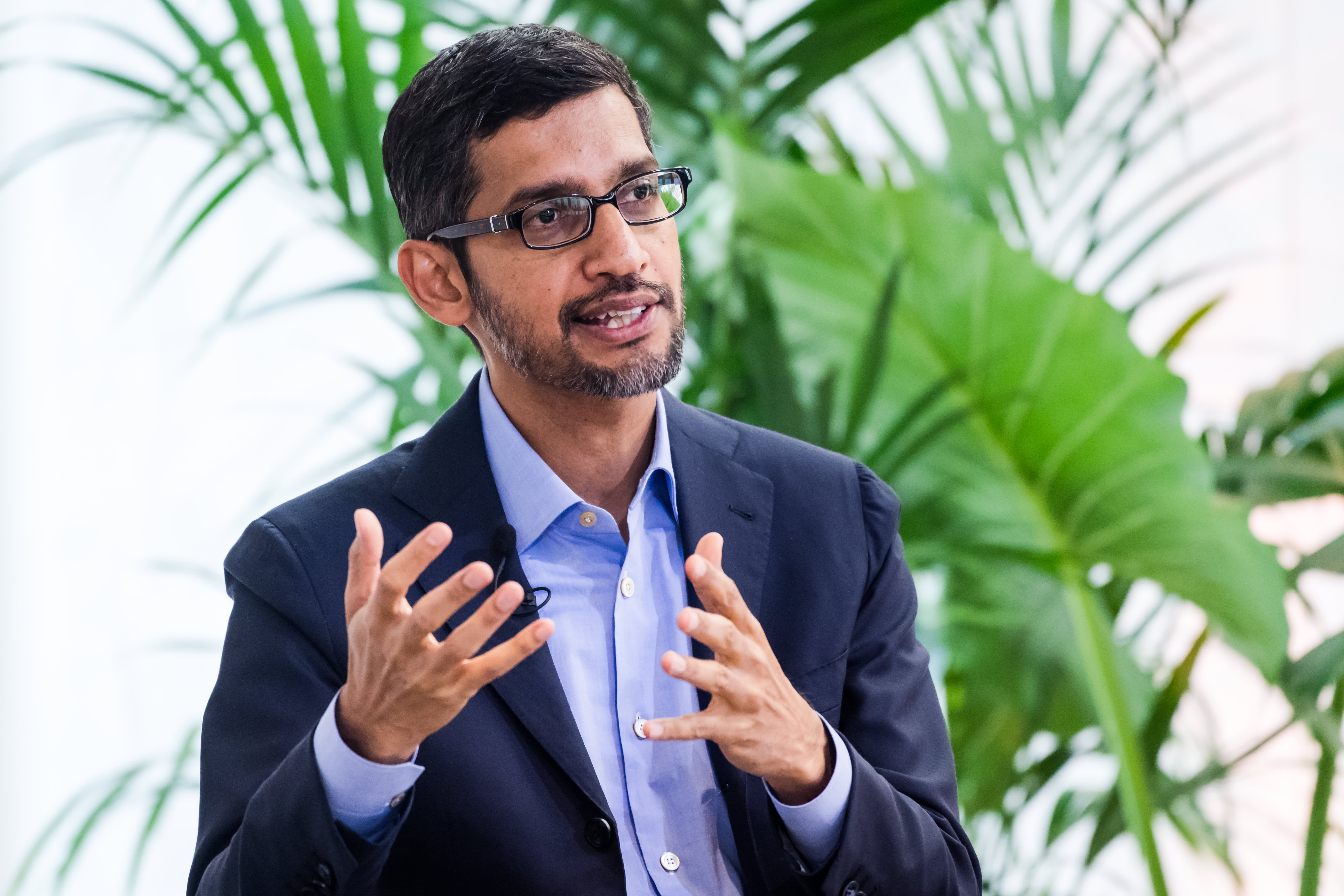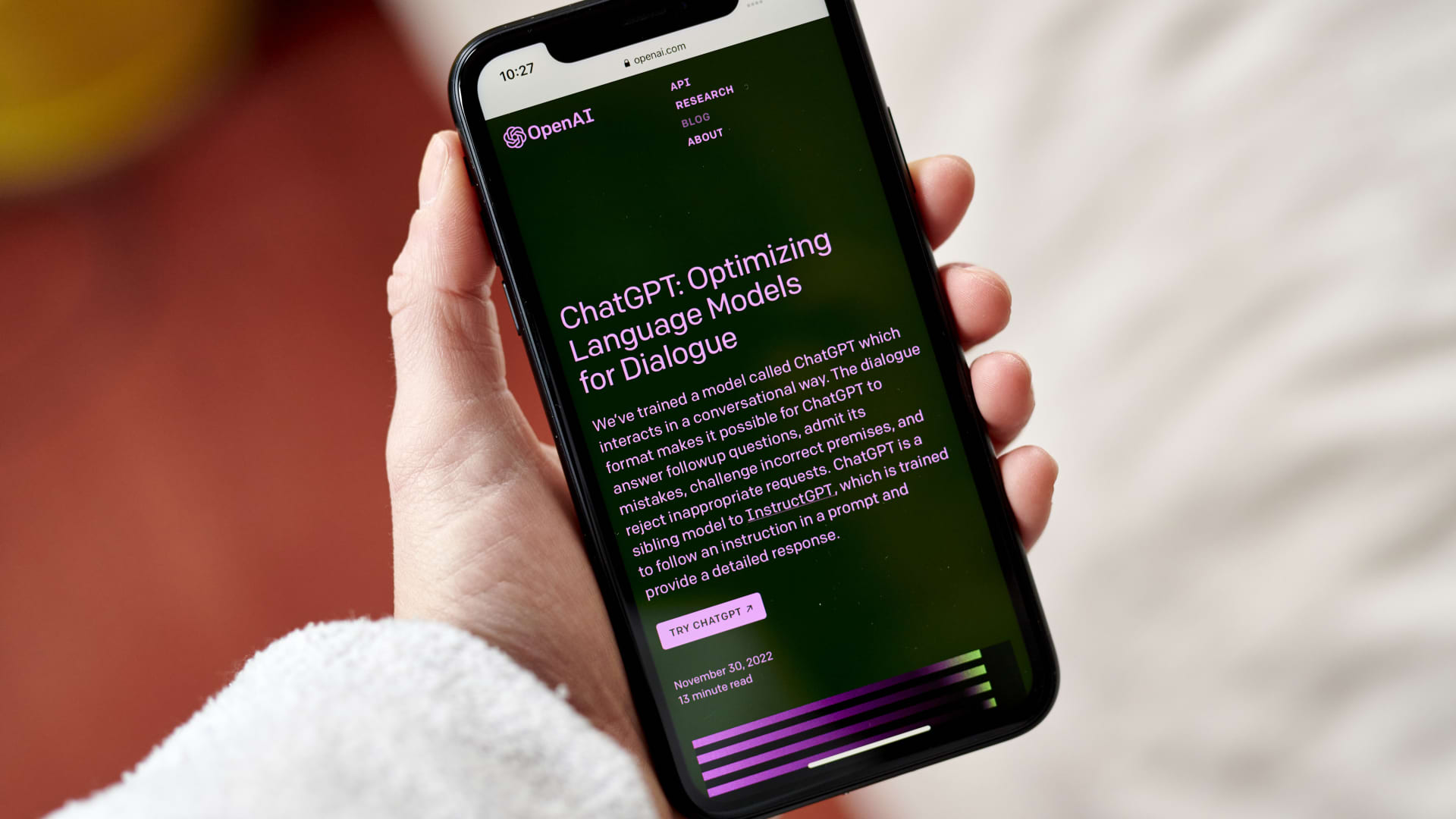Google’s antitrust mess: Here are all the major cases it’s facing in the U.S. and Europe

Sundar Pichai, chief executive officer of Alphabet Inc., gestures while speaking during a discussion on artificial intelligence at the Bruegel European economic think tank in Brussels, Belgium, on Monday, Jan. 20, 2020. Pichai urged the U.S. and European Union to coordinate regulatory approaches on artificial intelligence, calling their alignment critical.
Geert Vanden Wijngaert | Bloomberg | Getty Images
Google now faces several antitrust challenges around the world, including three government lawsuits filed in the U.S. in the last two months alone.
Government agencies have been scrutinizing the company for years, though, with the European Commission cracking down on the search giant well before U.S. regulators caught up. The Commission has already levied billions of dollars in fines against Google in three separate competition cases, which Google has appealed.
Regulators in other countries have also taken issue with Google’s competitive practices, like in Australia, where top Google critic News Corp has a major presence.
Google also faces a couple notable antitrust challenges from private complainants. Fortnite-maker Epic Games sued both Apple and Google separately for alleged anticompetitive practices, including charging “exorbitant” fees on sales through their mobile app markets. Online publishers Genius Media and The Nation filed a lawsuit Wednesday claiming Google hurt their businesses by suppressing advertising competition. They are seeking class action status.
In every major case, Google has denied engaging in any anticompetitive conduct. Google maintains its choices are made to benefit consumers.
These are the major competition cases against Google to watch in the U.S. and in Europe:
US Cases
DOJ
The Justice Department’s lawsuit closely tracks its earlier suit against Microsoft in the late 1990s, at least on its surface. Both discuss efforts to maintain monopoly power by tying up key distribution channels for competitors and using allegedly exclusionary contracts to ensure default status for its technology on manufacturers’ devices.
The DOJ lawsuit, filed in October with 11 Republican state attorneys general, details allegedly exclusionary contracts Google used to lock up distribution. One such example given in the suit is Google’s contract with Apple to give its search engine default status on Apple devices.
Since its original filing, California, Michigan and Wisconsin have asked to join the case.
Republican state AGs
Texas led a group of nine other Republican state attorneys general in a lawsuit focused on Google’s advertising technology business and an alleged anticompetitive agreement with Facebook.
The suit, which was filed Wednesday, alleges Google used its market power to push advertisers and publishers to use its tools across every step of the ad-buying process, ultimately to the detriment of consumers.
It also claims that Google established an agreement with Facebook when it learned of its plans to create an ad exchange that could potentially rival its own. The states allege the agreement involved Google rigging auctions to benefit Facebook in exchange for keeping the competitive threat at bay. A Google spokesperson told CNBC that claim is inaccurate and that Facebook is involved in exchanges outside of Google’s.
Bipartisan state coalition
A bipartisan group of attorneys general from 38 states and territories, including Colorado, Iowa, Nebraska and New York launched a third lawsuit against Google on Thursday. Part of the lawsuit echoes the DOJ’s claims of exclusionary contracts, but the complaint also reaches beyond that initial lawsuit.
The states’ complaint dives deeper into Google’s alleged efforts to lock up emerging distribution channels, like smart speakers. It also alleges Google limits the ability of vertical search providers like Yelp and Tripadvisor to reach consumers by using “discriminatory conduct on its search results page.”
The complaint also touches on Google’s advertising tools, claiming it unfairly disadvantages advertisers by denying them the ability to interoperate between its own ad tools and those from competitors.
House Judiciary subcommittee on antitrust
While Congress does not have law enforcement powers, the House Judiciary subcommittee on antitrust issued a lengthy report in October that its authors hope will result in long-lasting changes to the law. The report followed a more than year-long investigation into Amazon, Apple, Facebook and Google, finding each of the companies held monopoly power in their respective markets.
The majority report found that Google’s dominance functioned “as an ecosystem of interlocking monopolies” that was reinforced by linking different services with extensive user data. Like some of the recent lawsuits, the report found Google maintains its search monopoly through alleged anticompetitive contracts.
The subcommittee is working on new bills that aim to update the antitrust laws in a variety of ways to make them more capable of dealing with modern business problems. The report compiled by Democratic staff found “the courts have significantly weakened” antitrust laws since their enactment, leaving Congress with the duty to legislate to bring them back to their original intent.
EU
Shopping comparison
The European Commission fined Google 2.4 billion euros ($2.7 billion) in 2017 after finding the company violated antitrust rules by allegedly abusing its dominance in search to advantage its own shopping comparison product over competitors’. At the time, the fine was the largest ever the regulator issued in a monopoly abuse case.
Google is currently in the process of challenging the fine. Europe’s competition regulator can issue a decision before the subject has the chance to appeal the decision in court. In the U.S., this process is essentially flipped: regulators must ask the court to approve its settlements or side with it in lawsuits when it brings antitrust claims.
Android
The European Commission topped its previous record fine against Google in a second antitrust decision targeting Google’s Android mobile operating system in July 2018. Regulators fined Google the equivalent of $5 billion for allegedly abusing its dominance in Android to unfairly favor its own services. The Commission claimed Google did so in part by forcing smartphone makers to pre-install its apps exclusively.
Google has since appealed.
Online advertising
The third European investigation into Google resulted in a roughly $1.7 billion fine against the company in March 2019 for allegedly stifling competition in online advertising.
The Commission’s claims centered in part on exclusive contracts Google allegedly had with publishers using its AdSense tool that restricted them from showing ads from its competitors.
Google has also appealed that ruling.
What it all means
While Google faces the threat of potential break-ups in the future, it will likely be years before any significant resolution is reached. Once the new cases make their way through the courts, there’s still far from a guarantee that a judge would grant anything that drastic even if they do side with the government. It’s likely at least some of the cases against Google will be consolidated, with the bipartisan coalition already indicating it would file a motion to do so with the DOJ case.
While new laws that could make the courts more favorable to the government in such cases loom on the horizon, they are far from an immediate threat.
That’s likely why these new lawsuits have had little impact on Google’s stock price. Shares of its parent company Alphabet have rocketed nearly 30% in 2020 and nearly 20% over the past three months alone. Investors have grown used to the scrutiny on the trillion dollar company and the threat is already priced in.
Still, as long as these lawsuits last, Google will remain under a microscope for every move and acquisition it tries to make. Just as many believe the Justice Department’s case against Microsoft in the late 1990s to early 2000s diverted its attention from the growing threat from Google, a growing competitor could again thrive under the circumstances.
WATCH: Watch Google parent Alphabet CEO Sundar Pichai’s opening testimony to Congress
